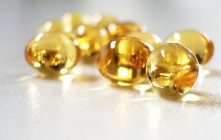Antioxidants touted as an anti-aging remedy and added to food and cosmetics may hinder ovulation, Israeli scientists have discovered.

Consumers have been told for years that antioxidants added to food, drink and facial cosmetics are a natural way to combat cell damage and slow down the aging process.
But according to a study by Prof. Nava Dekel of the Weizmann Institute of Science in Rehovot, these additives could be causing female fertility problems.
Common antioxidants, including vitamins C and E, neutralize the “reactive oxygen species” molecules our bodies sometimes overproduce in reaction to stress. It seems only logical to keep these reactive oxygen molecules at bay, because an overabundance of them leads to inflammation and cell damage.
However, when Dekel and her research team in the Biological Regulation Department applied antioxidants to the ovaries of female mice, they discovered that significantly fewer eggs were released from the ovarian follicles in comparison to the amount released by untreated ovaries.
Was it possible, they wondered, that the process of ovulation might actually rely on “harmful” reactive oxygen species molecules?
Further testing in mice seemed to support this hypothesis. In one experiment, for instance, Dekel and her team treated some ovarian follicles with luteinizing hormone, the physiological trigger for ovulation, and others with hydrogen peroxide, a reactive oxygen species. The results showed hydrogen peroxide fully mimicked the effect of the ovulation-inducing hormone.
New possibility for contraception
In recent years, researchers have noted that inflammation shares a number of common mechanisms with fertility and conception. Dekel, whose past research has focused on fertility, therefore suspects that anti-inflammatory substances such as antioxidants might get in the way of normal ovulation.
“On the one hand, these findings could prove useful to women who are having trouble getting pregnant,” said Dekel. “On the other, further studies might show that certain antioxidants might be effective means of birth control that could be safer than today’s hormone-based [pregnancy] prevention.”
Dekel and her team published their findings in the Proceedings of the National Academy of Sciences USA. Now, they plan further studies to investigate the exact mechanics of antioxidants in relation to ovulation and to examine their effect on mice when administered in either food or drink. In addition, they plan to collect human data on the possible link between antioxidant supplements and difficulty conceiving.
